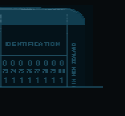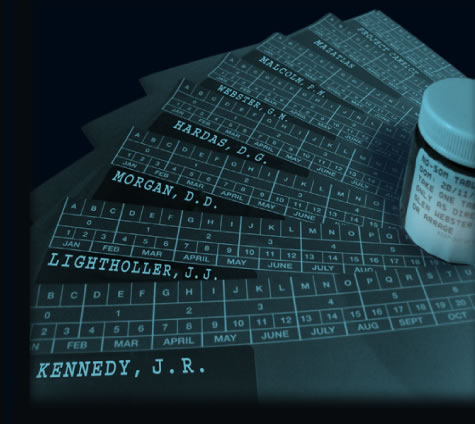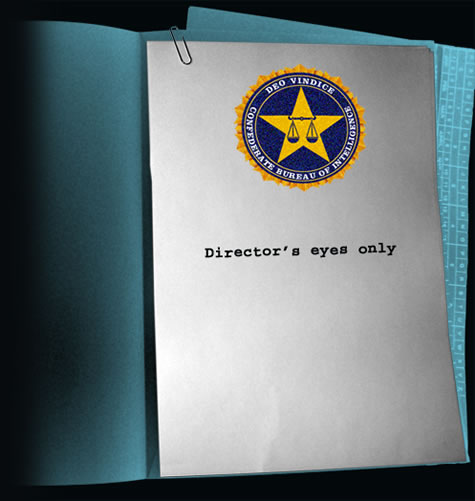April 14, 1912
North Atlantic
Jonathan Wells stood by the starboard railing, a gaunt figure in a dinner jacket. His coat billowed gently, borne by the ocean liner’s rapid passage. His hair, thick and black, lay damp against his brow. His eyes blinked and watered in the frigid air. The strains of a Strauss waltz rose from somewhere behind him, a low soft melody that was swiftly surrendered to the night.
I’ve entered uncharted waters, he thought. Hic sunt dracones. Here there be dragons.
The enormity of his undertaking began to dawn upon him. Tentatively he placed both hands on the ship’s rail. It was one final test of reality, one final test of faith. Cold steel retaliated with teeth of ice. He held his grip till the burn of it receded to numbness.
Two hours earlier he’d found one of the lookouts, alone on the forecastle deck.
“A cold night, isn’t it, Mr. Fleet.”
“Aye, sir.” the man had responded with steady deference. “And it’s going to get colder.”
“I believe it’s your watch.”
Fleet nursed a steaming mug of coffee. He nodded between mouthfuls.
Wells withdrew a package from under his coat. “I’ve been asked by Mr. Andrews to supply you with these.”
Fleet’s eyes widened at the the ship builder’s name. Since leaving Southampton four days ago, Thomas Andrews had busied himself about the vessel, attending to minor design flaws and overseeing last-minute repairs. Wells hoped that the delivery of these binoculars would be seen as merely another example of Andrews’ attention to detail.
The crewman turned them over in his hands, studying them in admiration. The binoculars were remarkably compact and extremely light by comparison to the standard issue.
Drop them, Wells thought, and it simply wasn’t meant to be. His pulse was racing now. He realised he was holding his breath. He exhaled slowly. “They’re German,” he said. “The latest design.”
“Bugger me if I can’t see all the way to Dover,” Fleet marvelled. He reddened at the sudden outburst and doffed his cap, apologising.
Wells, concerned with other white cliffs, offered a polite smile. He’d seen this night play itself out a thousand times in his dreams. He fought the urge to tell the lookout everything he knew. “Just keep a sharp watch, Mr Fleet,” he murmured, “Good night.”
He walked away briskly, mute fears clawing at his resolve. He had two hours to kill.
Seeking distraction he toured the Cafe Parisian and the first-class lounge. He tried to appear relaxed. In the mahogany-panelled smoking room he bought a round of drinks and spoke with a number of its regulars. Even to the last he maintained his one strict, if morbid rule. His one pessimistic precaution. Captain Smith, Thomas Andrews, Harry Widener, Isidore Straus, Benjamin Guggenheim, John Jacob Astor. He only kept company with the dead. There’d be time enough to forge new acquaintances when the deed was done.
He returned to the boat deck, his agitation mounting. He could feel the bourbon’s warmth slowly leaking from his bones. He glanced toward the ship’s stern and watched as a young couple emerged from the aft stairwell, their burst of laughter cut short by the sudden cold. They huddled together and after a brief exchange returned to the warmth within.
Wells allowed himself a moment’s pride. They’d never know how cold this night could get.
Resuming his vigil he was startled by the brittle clang of the ship’s bell. Three sharp reports issued from the darkness above. The final peal still rang over the waters as he reached for his watch.
Half eleven. Nodding slowly to himself, he replaced the timepiece. His hands shook violently.
“Steady,” he murmured.
He was almost certain that he could feel the ship altering course beneath his feet. Somewhere, orders were being given and received, calloused hands were straining against levers. Fleet must have accomplished his task, for slowly but inexorably, their course was shifting.
“Steady...”
He could feel it. The flutter of butterfly wings that would herald a brighter, better world. He looked out to the flat, calm ocean, the moonless night. Beyond the ship’s illumination the dark waters rose up so that he felt as if he and the ship lay at the centre of a vast opaque bowl. Then at a distance, under the starlight’s dim flicker, he saw it. First, a jagged edge, then two irregular peaks, riding black against the black night sky.
Long minutes passed as the iceberg faded from view. A new melody coursed up from behind him; ragtime. He found himself tapping his foot to the muted rhythm. He turned so that his back now rested against the railing and his face basked in the reflected light of a multitude of windows.
Toward the ship’s bow two crewmen shared a cigarette. They stamped their feet while talking, the cigarette smoke mingling with their fogged exhalations. He approached the entrance to the grand staircase, a smile slowly forming on his lips. By the time he reached the crewmen he was laughing openly. They glanced in his direction, nodded respectfully, and returned to their conversation, hushed and conspiratorial in the cathedral night.
Entering the grand staircase he peered upwards. The glass dome filtered out the night sky. A chandelier illuminated the room, its own constellation. One of the stewards silently appeared at his side. “Up late, Mr. Wells?” he said.
“Just taking a turn on the deck. It’s a beautiful night. Almost perfect.”
The steward nodded doubtfully, and vanished into the first-class lounge.
Wells descended the stairwell two steps at a time, Down three flights and he was on C deck. The door to the purser’s office was ajar, the elevator unattended. Here, apart from the soft footfall of other passengers and crewmen down other corridors, and the low steady thrum of the engines, all was silent. He walked down the hallway, withdrew a key from his coat pocket and entered his cabin.
The room was cool and dark. He lit the lamp. Crossing to the porthole he placed an outstretched palm against the wall and opened it, taking in a lungful of cold crisp air before closing the window. Removing his scarf and coat, he drew an ornate chair up to a table that was bare, apart from a dog-eared journal. He took a pen from his breast pocket, inspected its nib, and turning to a blank page, began to write.















